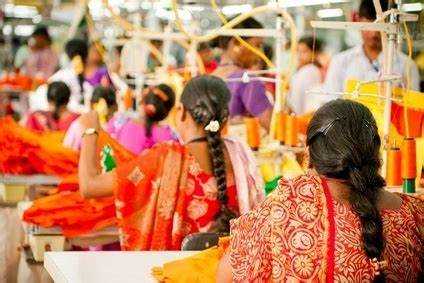The Textile Industry In India


The textile industry is passing though its worst phase in the past decade, said Munish Bagrodia, president, Northern India Textile Mills Association (NITMA).
“The country has a large and vibrant textile industry, employing millions of people in the value chain. But presently, the industry is passing through a bad phase,” he added.
Munish Bagrodia and Sanjay Garg, senior vice-president of NITMA, in a press release issued here, said India had a potential of grabbing a major portion of the global textile trade, which might eventually shift from China in the aftermath of US-China changing equation.
“But here, the challenges are completely home-grown and hampering the growth of Industry. The biggest problem is that basic raw materials, such as cotton and polyester, are not available at global prices that are lower. The Indian government should adopt market-driven agri-commodity markets and stop the practice of buying kapas by CCI and Nafed under the MSP operations. The government should instead support farmers by direct cash transfers in such scenarios. It will help the industry in sourcing the raw material at global prices,” office-bearers of NITMA said.
Another big issue is the interest rates as compared to competing countries, such as China, Vietnam and Indonesia where it is around 5 per cent. However, in India, it is around 10-12 per cent, which increases the cost of operations and makes the industry non-competitive, they added.
Another major problem is the state and central level taxes, which have not been subsumed in GST. These are mainly Mandi Tax and electricity duty at state level and excise duty on petroleum products at the central level.
The labour reforms are another area where the government should look immediately. There is a large potential of employing less educated and unskilled masses with minimal training. The Prime Minister Skill Development Scheme is a step in the right direction.
It should be implemented directly by Central government in participation with industry. The Employees State Insurance (ESI) scheme is putting a huge burden on industry but not benefitting the labour force due to lack of adequate hospitals and dispensaries, they said.
Simultaneously, the neighbouring countries like Bangladesh and Sri Lanka should not be allowed to misuse the bilateral FTAs by dumping goods made out of Chinese raw materials.India at large is facing the problem of joblessness and if the government can resolve these issues, the textile industry can largely help the nation on the job front, said NITMA.
2019-08-23 11:58

